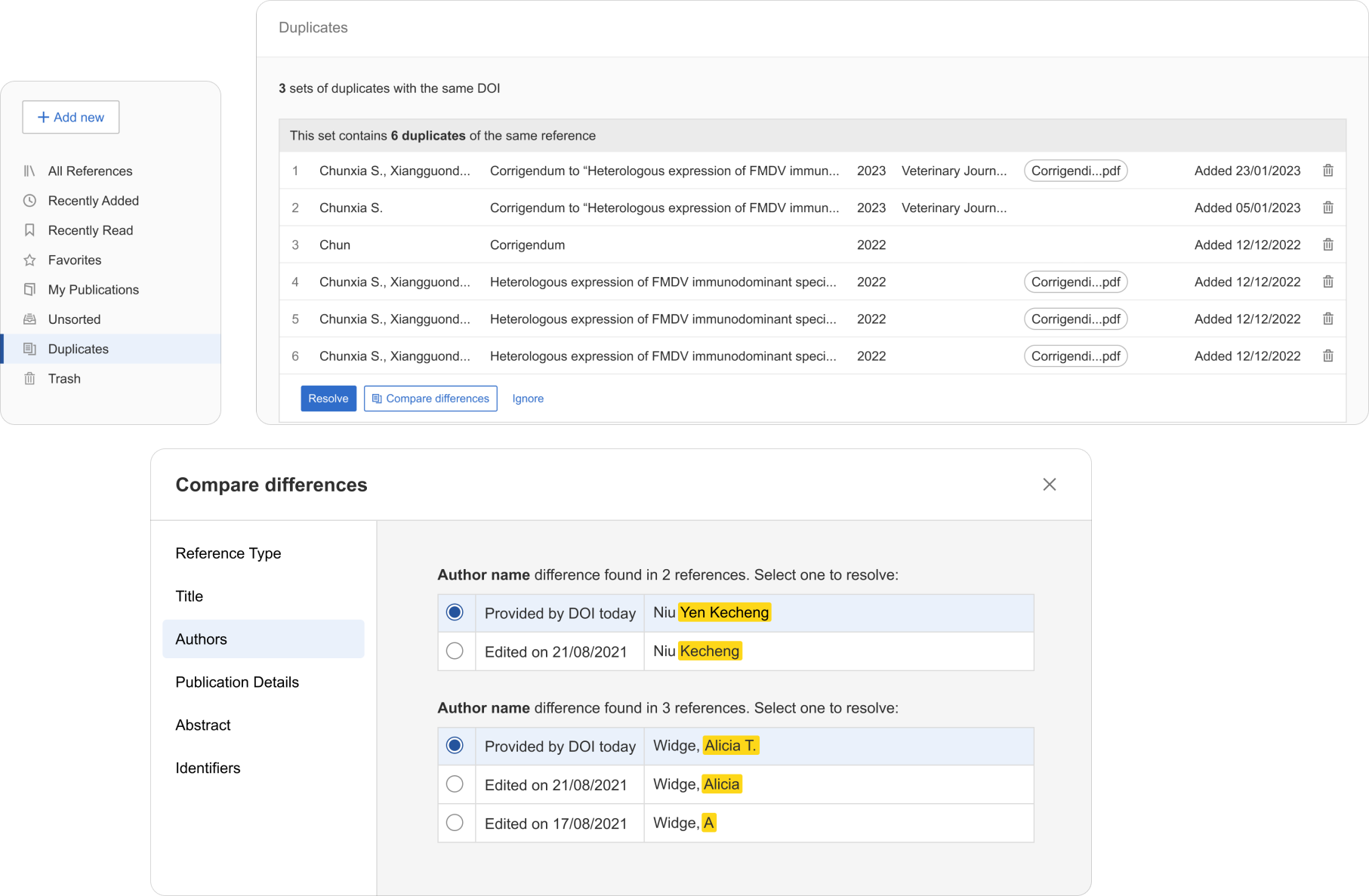
Smart Duplicate Management
Efficiently Identify, Compare, and Resolve Data Duplicates
Mendeley Reference Manager is a SaaS offering by Mendeley that serves over 2.5 million researchers globally, providing a robust B2C platform to organise, manage, and compose research with efficiency.
Aiming to elevate the quality of researchers' work, Mendeley's Duplicate Management feature effortlessly identifies, compares, and resolves duplicate references, ensuring a streamlined and efficient research process for all users.
ROLE
UX Designer
COLLABORATORS
Senior Product Director
Product Managers
Design team
Developers
TIMELINE
January - March 2023
RESPONSIBILITIES
Lead and conduct user research
Analyse feedback and generate reports
Design user flows and UI
Create prototypes
Defining the problem
The Impact of Duplicates on Researchers' Workflow
Managing duplicates remains a significant challenge for the researchers worldwide. Duplicate references can clutter researchers' libraries, making it time-consuming and frustrating to locate and remove redundant entries. This not only hampers their productivity but also impacts the accuracy and quality of their work.
Project Goals
Offer an intelligent solution to effortlessly compare, identify, and resolve duplicate references, ensuring a streamlined research process.
Insights from previous research
Using data from past user research and feedback gathered through ProdPad, we discovered that nearly half of our users prioritise the ability to compare and resolve duplicates. Although some progress was made, the previous design left many users confused and frustrated.
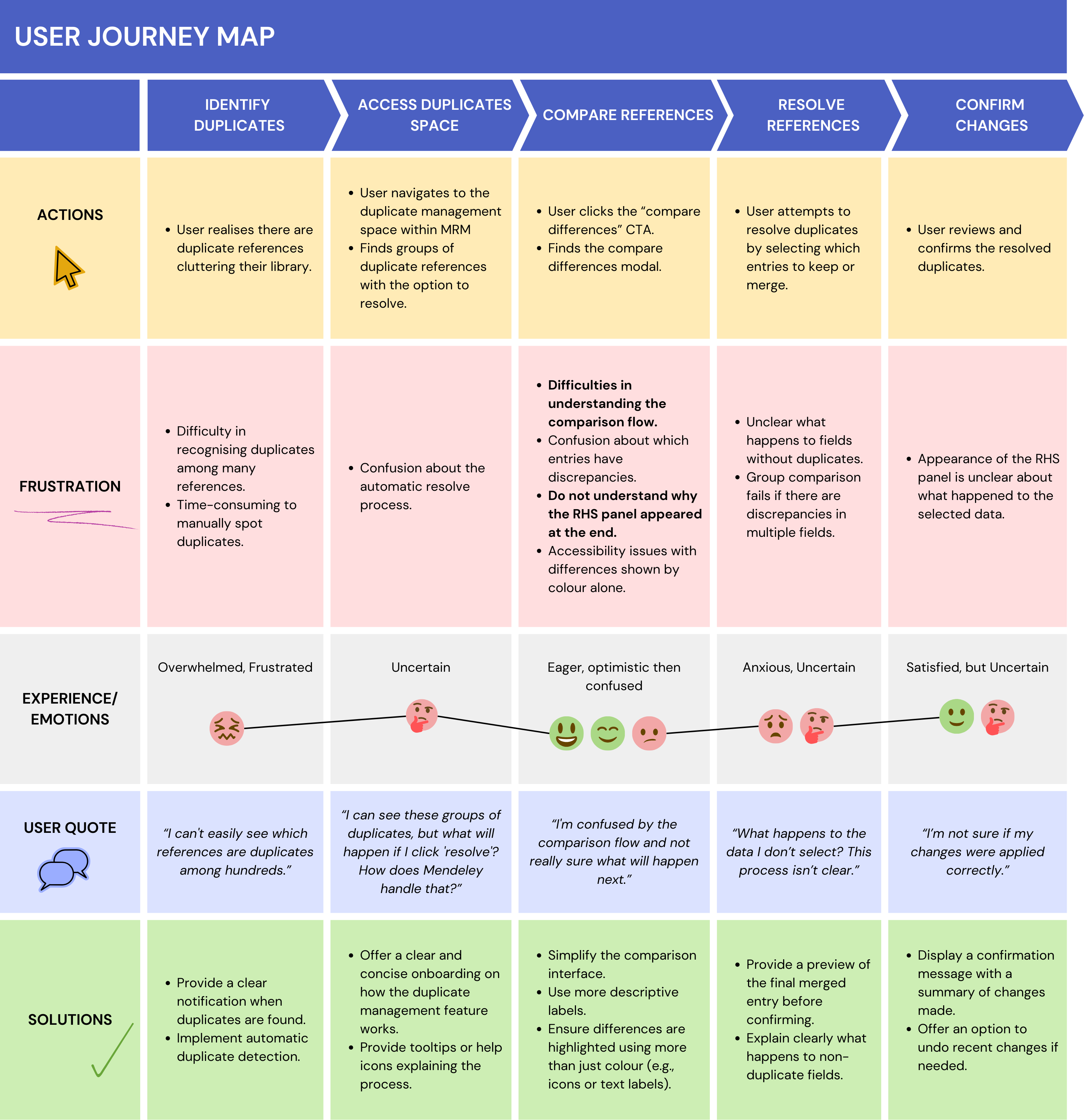
Explorations
Concept 1
Help users to understand their position in the workflow and identify which metadata has duplicates.
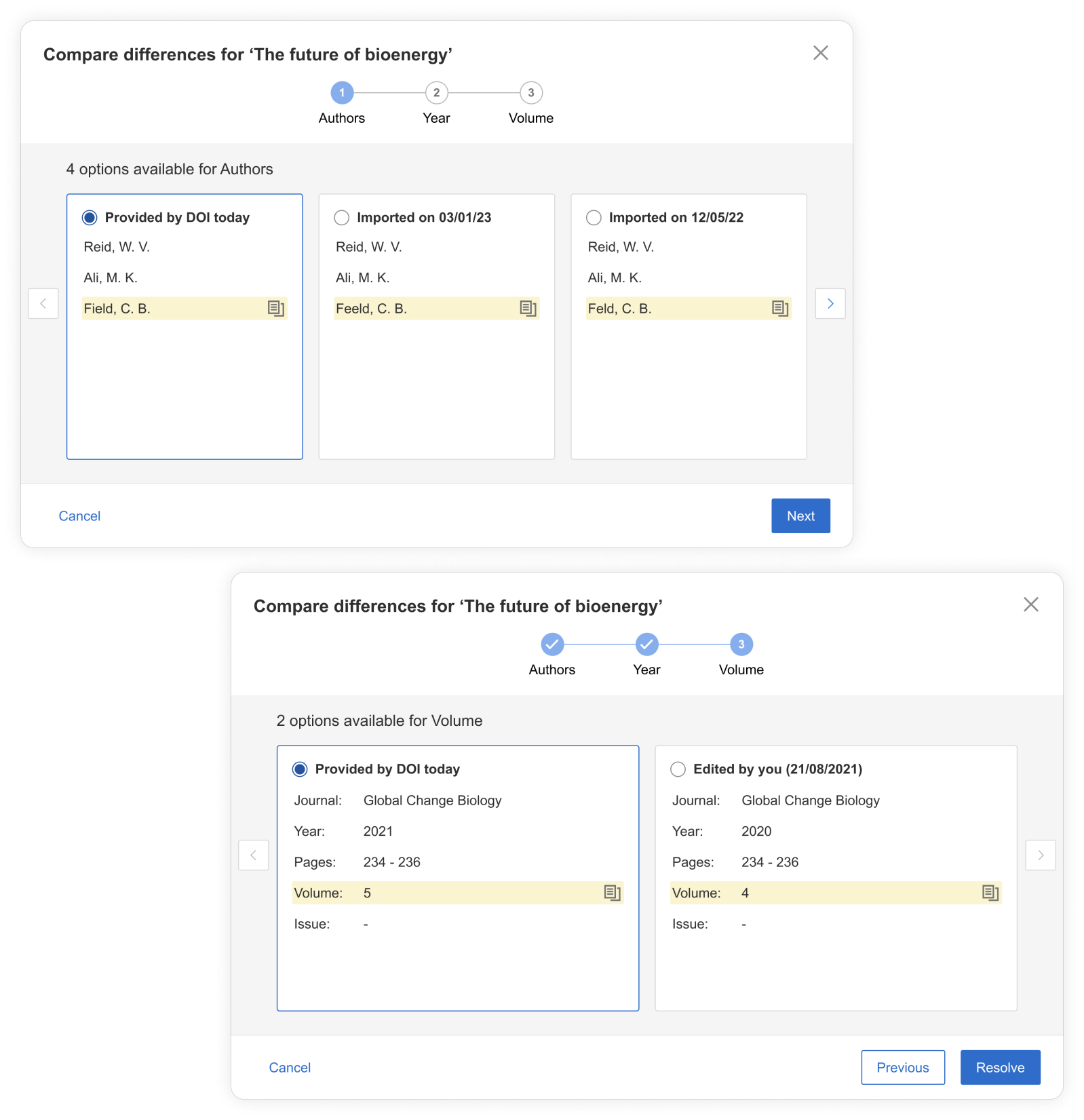
Improved User Flow Comprehension
Enhanced visual indicators and step markers to clearly show users their current position in the duplicate management process.
Accessibility Enhancement
Used icons and colour to differentiate duplicates, ensuring accessibility for users with visual impairments.
Multifaceted Metadata Comparison
Enabled display of discrepancies across multiple metadata fields for a comprehensive comparison view.
Action-Oriented CTA
Changed the CTA from “Done” to “Resolve” to better match the user’s task, providing clear action-oriented guidance.
Explorations
Concept 2
Help users to feel a sense of familiarity by using the existing RHS Panel to highlight the metadata differences
Enhanced navigation
Using clear visual indicators to identify where the duplicate metadata exists.
Scalable Metadata Comparison
Provided metadata to compare and select in the RHS section of the modal.
Reduce Confusion
Introduced a backdrop to the RHS panel, directing the user's focus to the RHS after selecting options from the comparison overlay.
Minimise Redundancy
Implemented a preview-only state for the RHS, disabling editing to eliminate ambiguity.
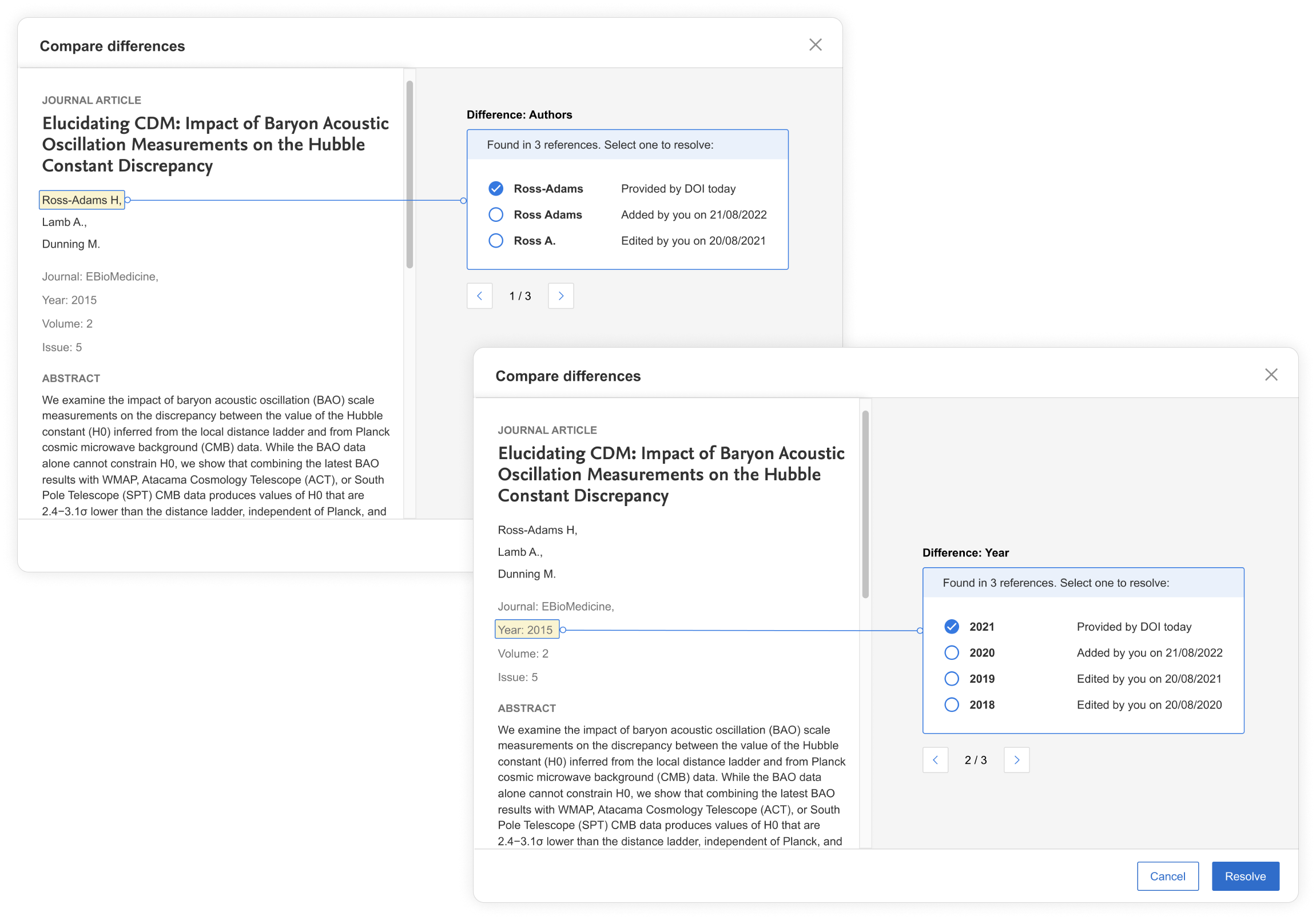
Usability Testing
Testing with Users
Qualitative Testing ·
Semi-Structured Remote Interviews ·
6 Users

A Solution Built for Usability, Accessibility, and Scalability
Crafting a User-Centered Approach to Handle Diverse Data at Scale
After user testing and cross-disciplinary feedback, I designed a solution that prioritises usability and scalability. The new approach handles any volume of duplicate metadata, offering clear navigation and a streamlined process for comparing, selecting, and resolving duplicates. It enables users to easily identify discrepancies and move seamlessly through the comparison process.
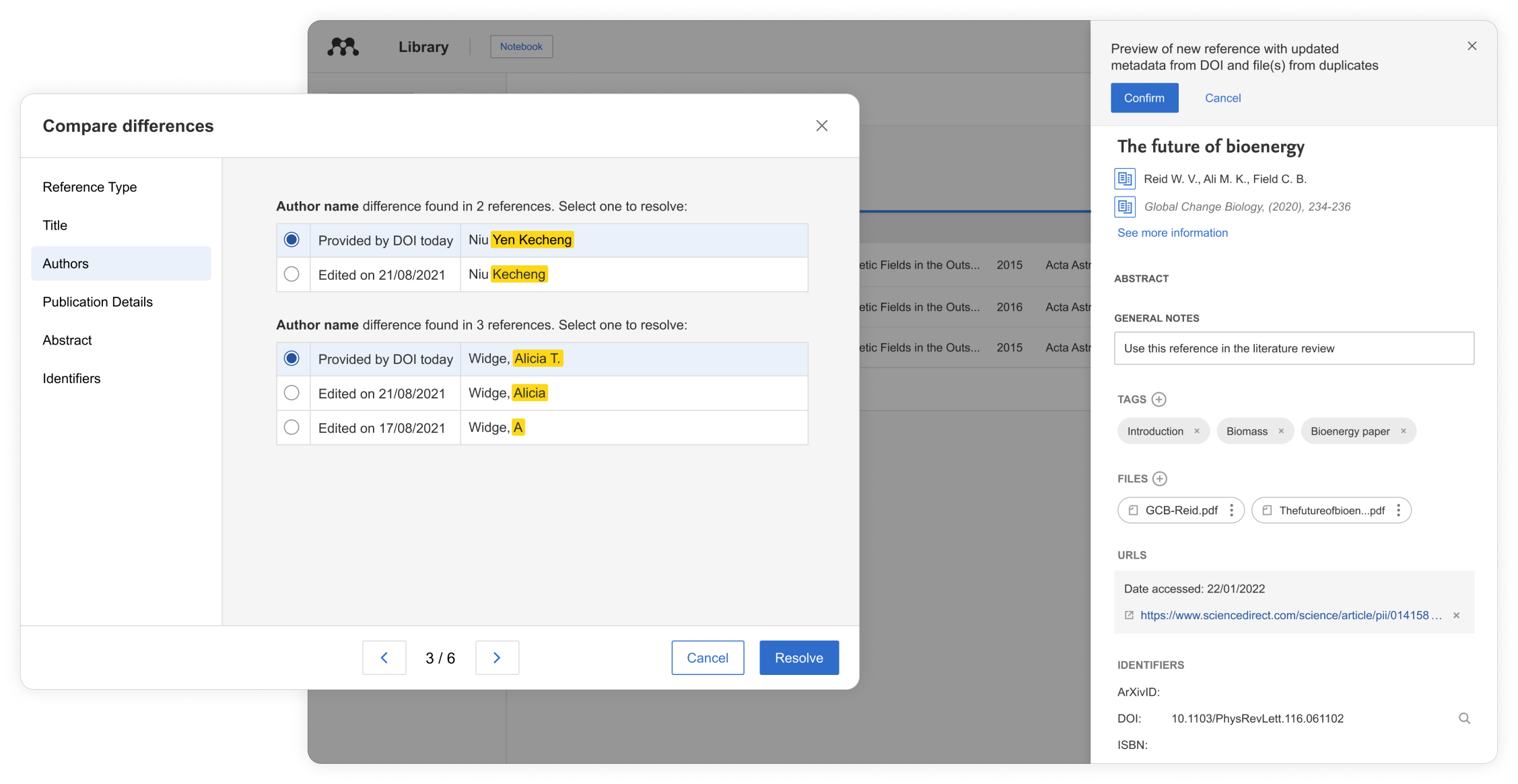
Accessibility was a top priority in our design efforts. We collaborated closely with the development team to deliver a solution featuring ARIA labels, keyboard navigation, and screen reader support.
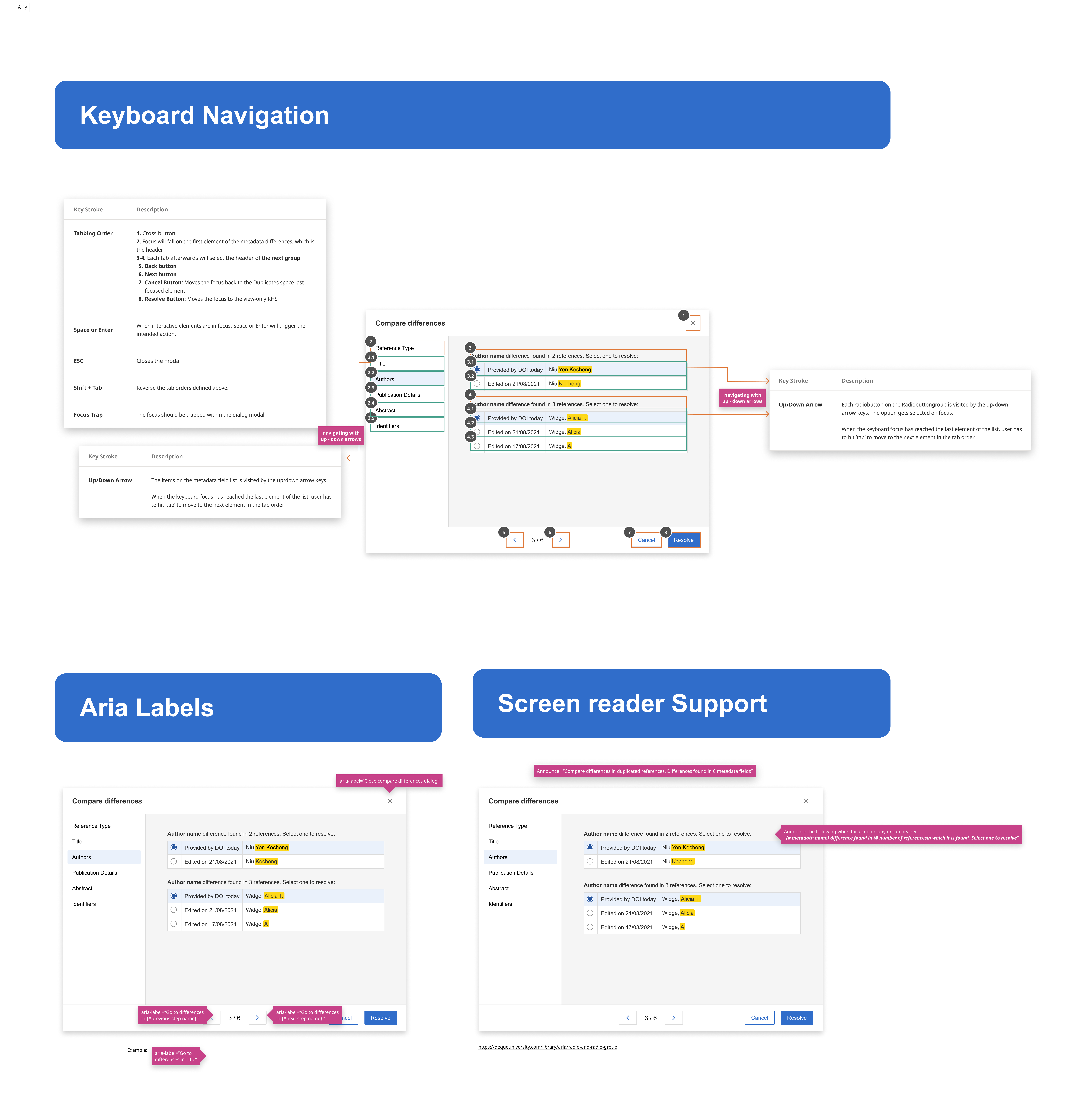
Next Steps
Moving Towards Implementation
The solution is not yet in production. The next steps involve developing and launching it, which will require ongoing feedback and close collaboration with the development team.
Ongoing Testing and Evaluation
Plan post-production testing, including post-launch surveys, user interviews, in-depth analysis of Adobe Analytics data, and gathering user feedback through our ProdPad tool.